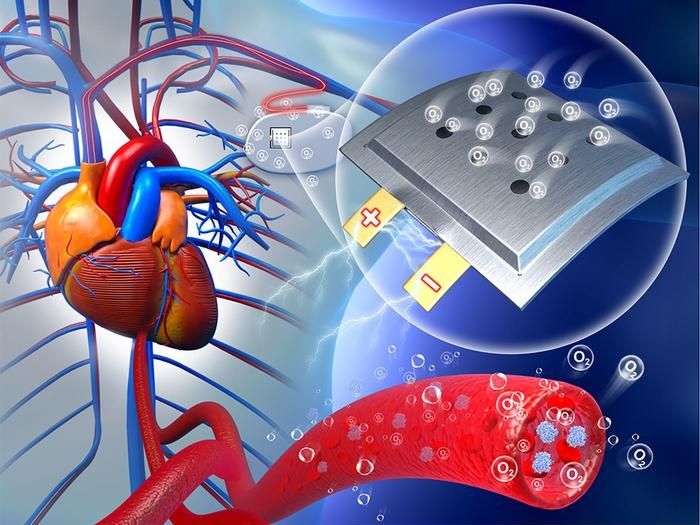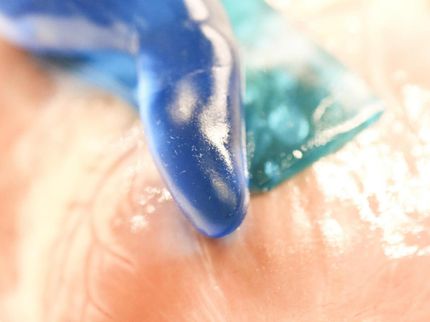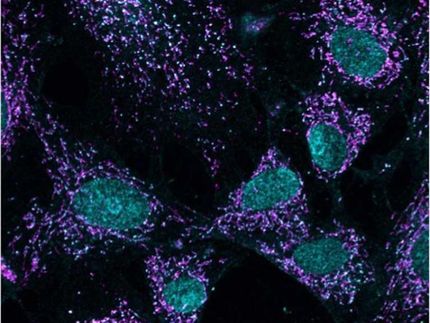Implantable batteries can run on the body’s own oxygen
“From a new energy source to potential biotherapies, the prospects for this battery are exciting”
From pacemakers to neurostimulators, implantable medical devices rely on batteries to keep the heart on beat and dampen pain. But batteries eventually run low and require invasive surgeries to replace. To address these challenges, researchers in China devised an implantable battery that runs on oxygen in the body. The study, published March 27 in the journal Chem, shows in rats that the proof-of-concept design can deliver stable power and is compatible with the biological system.

Implantable and bio-compatible Na-O2 battery
Chem/Lv et al., CC BY-SA
“When you think about it, oxygen is the source of our life,” says corresponding author Xizheng Liu, who specializes in energy materials and devices at Tianjin University of Technology. “If we can leverage the continuous supply of oxygen in the body, battery life won’t be limited by the finite materials within conventional batteries.”
To build a safe and efficient battery, the researchers made its electrodes out of a sodium-based alloy and nanoporous gold, a material with pores thousands of times smaller than a hair’s width. Gold has been known for its compatibility with living systems, and sodium is an essential and ubiquitous element in the human body. The electrodes undergo chemical reactions with oxygen in the body to produce electricity. To protect the battery, the researchers encased it within a porous polymer film that is soft and flexible.
The researchers then implanted the battery under the skin on the backs of rats and measured its electricity output. Two weeks later, they found that the battery can produce stable voltages between 1.3 V and 1.4 V, with a maximum power density of 2.6 µW/cm2. Although the output is insufficient to power medical devices, the design shows that harnessing oxygen in the body for energy is possible.
The team also evaluated inflammatory reactions, metabolic changes, and tissue regeneration around the battery. The rats showed no apparent inflammation. Byproducts from the battery’s chemical reactions, including sodium ions, hydroxide ions, and low levels of hydrogen peroxide, were easily metabolized by the body and did not affect the kidneys and liver. The rats healed well after implantation, with the hair on their back completely regrown after four weeks. To the researchers’ surprise, blood vessels also regenerated around the battery.
“We were puzzled by the unstable electricity output right after implantation,” says Liu. “It turned out we had to give the wound time to heal, for blood vessels to regenerate around the battery and supply oxygen, before the battery could provide stable electricity. This is a surprising and interesting finding because it means that the battery can help monitor wound healing.”
Next, the team plans to up the battery’s energy delivery by exploring more efficient materials for the electrodes and optimizing the battery structure and design. Liu also noted that the battery is easy to scale up in production and choosing cost-effective materials can further lower the price. The team’s battery may also find other purposes beyond powering medical devices.
“Because tumor cells are sensitive to oxygen levels, implanting this oxygen-consuming battery around it may help starve cancers. It’s also possible to convert the battery energy to heat to kill cancer cells,” says Liu. “From a new energy source to potential biotherapies, the prospects for this battery are exciting.”




















































